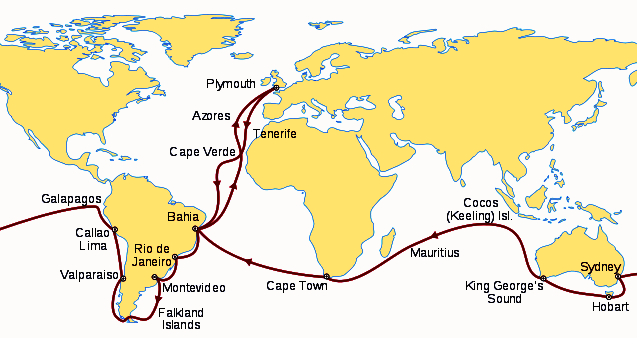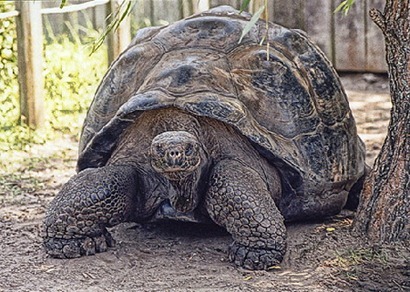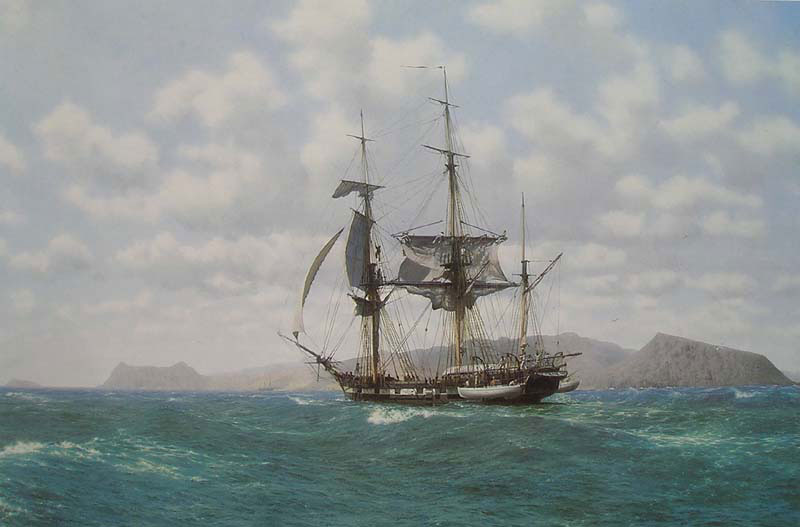He was an English naturalist, considered the most influential scientist of the time to raise the idea of biological evolution through natural selection. His work “On the Origin of Species” (1859) is the result of his observations during his expedition aboard the Beagle from December 27th, 1831 to October 2nd, 1836.
Captain Fitzroy led the expedition in order to complete the topographic survey of the territories of Patagonia and Tierra del Fuego, tracing the coast of Chile, Peru, and some Pacific islands, as well as perform a series of lap times around of the world.

The trip, which began in Davenport, carried Darwin along the coast of South America, the Galapagos, Tahiti, New Zealand, Australia, Mauritius, and South Africa islands and lasted more than five years. Such were the impressions of the young Darwin, then willing to become pastor, that after this expedition he would refer to it as his “second life”.
“It was the most important event of my life. I owe to this trip the education of my character. It was a real training, because I had to devote attention to several branches of natural history and this forced me to improve and intensify my observation faculties”. (Darwin)
Darwin observed the growth of coral reefs around the edges and on top of islands, in the process of sinking. He developed hypotheses about the geological structure of some islands, as Santa Elena; and discovered some similarity between the fauna and flora of the Galapagos Islands with South America, and how it made a difference in the same species developed on different islands.
Darwin was amazed by the uninhabited Galapagos Islands, where he found, supposedly extinct, turtles and oversized crabs, hawks and doves, who came friendly to rest on the shoulder of the traveler. The young man recounts enthusiastically in his travel diary the grandeur of the lava plains in the Cape Verde Islands, impressed by the habits of some marine animals, especially the octopus.

Later, in Valparaiso, she exclaims about the Andes: “From where we are, the Cordillera owes much of its beauty to the atmosphere. What an admirable spectacle of those mountains that stand out against the blue sky, and whose colors are of the most vivid hues, at the time the sun sets on the Pacific! ” (Darwin)


